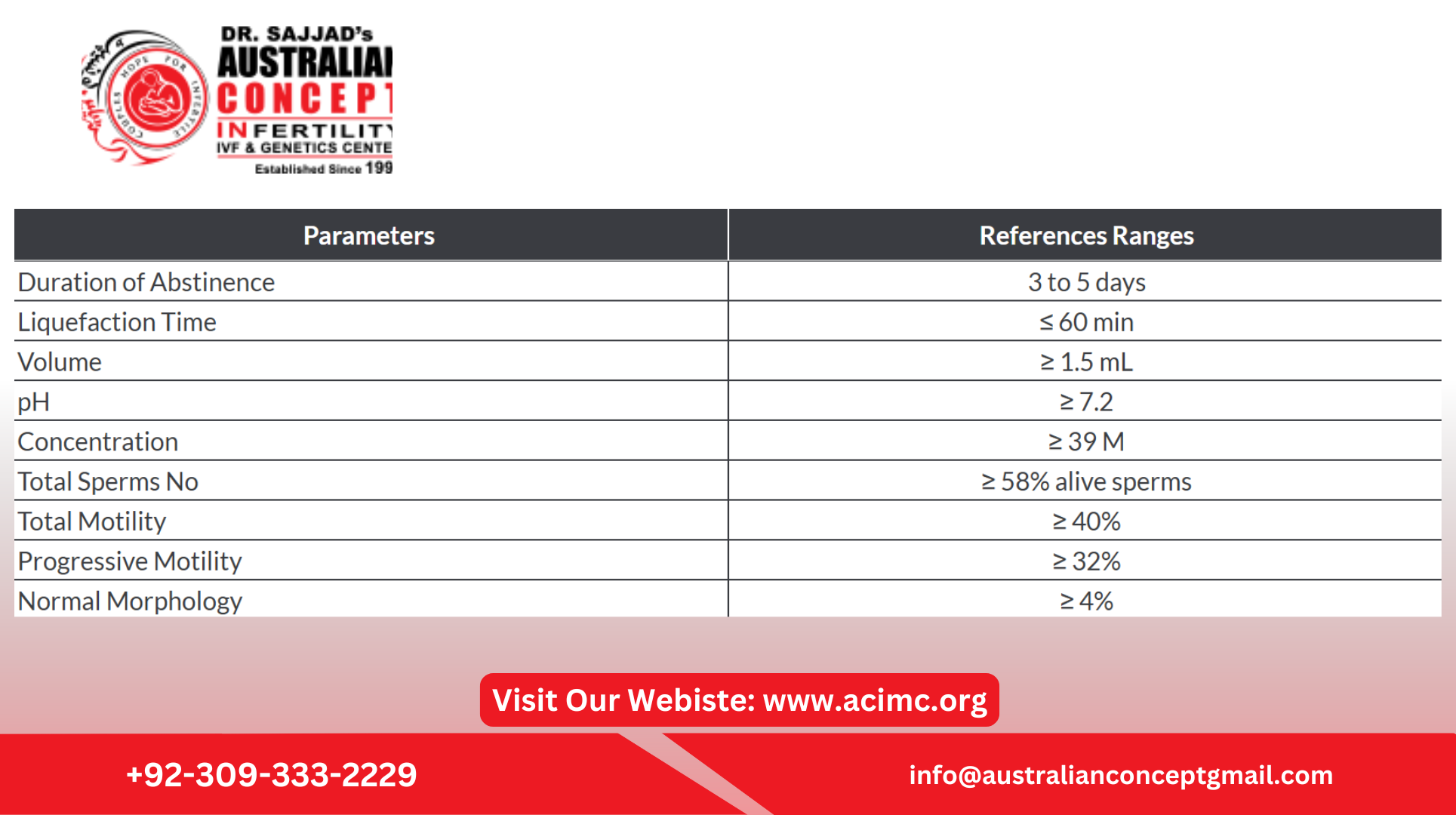A semen analysis is often one of the first and most essential tests performed when evaluating male fertility. It helps assess sperm count, motility, morphology, and overall semen quality. However, like any medical test, several factors can affect the accuracy of a semen analysis normal report. Understanding these factors is crucial to ensure reliable results and guide appropriate fertility treatment.
Why Semen Analysis Accuracy Matters
Semen analysis provides valuable information for both patients and doctors:
-
Identifies potential causes of infertility.
-
Helps determine the best treatment options.
-
Assists in diagnosing conditions like varicocele, infection, or hormonal imbalance.
-
Guides decisions for procedures such as IUI, IVF, or azoospermia treatment.
Because of its role in fertility evaluation, accurate test results are essential for effective diagnosis and treatment planning.
Key Factors That Affect Semen Analysis Accuracy
1. Collection Technique
Improper collection methods can introduce errors:
-
Semen should be collected through masturbation directly into a sterile container.
-
Avoid using condoms, as many contain spermicides that can alter sperm quality.
-
Spillage or incomplete collection may falsely lower sperm count.
It's important to follow instructions carefully to prevent contamination or sample loss.
2. Timing of Analysis
Semen samples should be analyzed as soon as possible after collection:
-
Ideally, within 30 to 60 minutes.
-
Delay in analysis may result in decreased motility and altered pH levels.
-
If collected at home, samples should be kept at body temperature and delivered quickly to the lab.
Prompt processing preserves the sample’s integrity for accurate testing.
3. Illness or Fever
Recent illnesses, especially those involving high fever, can temporarily affect sperm production and quality:
-
Sperm production may take 2 to 3 months to recover after a fever or infection.
-
Respiratory infections, flu, or any systemic illness can influence results.
Inform your healthcare provider about any recent health issues before scheduling a semen analysis.
4. Medications and Supplements
Certain medications can affect sperm production and function:
-
Anabolic steroids
-
Testosterone therapy
-
Chemotherapy drugs
-
Some antibiotics
-
Antidepressants
-
Supplements or herbal remedies
Always disclose all medications and supplements to your infertility specialist before the test.
5. Lifestyle Factors
Several lifestyle habits can influence semen analysis results:
-
Smoking: Reduces sperm count and motility.
-
Alcohol consumption: Impairs sperm production and DNA integrity.
-
Drug use: Recreational drugs, including marijuana and cocaine, negatively affect sperm quality.
-
Obesity: Linked to hormonal imbalances that affect sperm production.
-
Stress: Can interfere with hormone levels and sexual function.
Adopting a healthier lifestyle improves semen quality and may positively influence test results.
6. Environmental Exposures
Prolonged exposure to environmental toxins can impact sperm health:
-
Pesticides and herbicides
-
Industrial chemicals
-
Heavy metals like lead and mercury
-
Radiation or excessive heat (e.g., frequent hot tub use)
Avoiding harmful exposures helps protect sperm production and function.
7. Frequency of Ejaculation
Frequent ejaculation may temporarily lower sperm count, while infrequent ejaculation may lead to older, less motile sperm:
-
Balance is key.
-
Follow your doctor’s recommended abstinence period to ensure an optimal sample.
8. Laboratory Standards and Technician Skill
Accurate semen analysis depends heavily on the laboratory’s quality:
-
Certified laboratories with trained technicians provide more reliable results.
-
Inconsistent lab procedures or equipment issues can lead to inaccurate assessments.
Choosing an experienced fertility clinic or laboratory ensures consistent and accurate testing.
9. Hydration and Diet
Hydration and nutrition can also affect semen parameters:
-
Dehydration may reduce semen volume.
-
Poor diet lacking in antioxidants may affect sperm quality.
-
A balanced diet rich in vitamins, minerals, and healthy fats supports sperm production.
Maintaining good hydration and a nutritious diet contributes to more consistent test results.
10. Emotional and Physical Stress
Both physical and psychological stress can alter hormone levels and semen quality:
-
High stress may lower testosterone and sperm count.
-
Physical exhaustion can impact sexual function and sample quality.
Managing stress levels can improve overall reproductive health.
11. Underlying Medical Conditions
Certain health conditions can directly affect semen quality:
-
Varicocele (enlarged veins in the scrotum)
-
Hormonal imbalances
-
Diabetes
-
Thyroid disorders
-
Sexually transmitted infections (STIs)
-
Genetic conditions
If these conditions exist, your infertility specialist may recommend additional testing or treatment to address them.
How to Ensure the Most Accurate Semen Analysis
-
Follow your doctor’s instructions carefully.
-
Avoid ejaculation for 2-7 days before the test.
-
Avoid alcohol, smoking, and recreational drugs.
-
Disclose any medications or supplements.
-
Inform your doctor about any recent illnesses.
-
Collect the sample properly, avoiding contamination or spillage.
-
Deliver the sample to the lab promptly.
The Role of the Infertility Specialist
An experienced infertility specialist plays a vital role in ensuring accurate semen analysis results by:
-
Providing clear pre-test instructions.
-
Identifying any factors that may impact the test.
-
Repeating the test if necessary to confirm results.
-
Interpreting results in the context of your overall fertility evaluation.
Your specialist may recommend multiple semen analyses to obtain a clearer picture of sperm health, as semen quality can vary from sample to sample.
Conclusion:
Semen analysis is a crucial part of male fertility evaluation, but several factors can influence its accuracy. By understanding these factors and following proper guidelines, couples can ensure reliable results that lead to the most effective treatment options. With the expert guidance of a skilled infertility specialist, any issues affecting semen analysis can be identified and addressed, improving the chances of successful fertility treatment.



